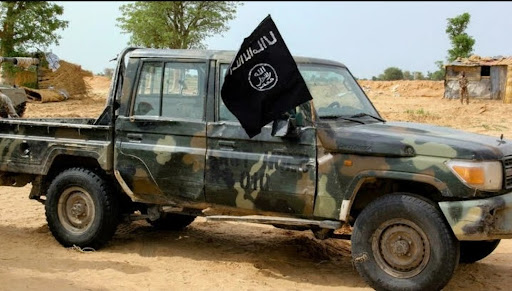Media Blackout On Insurgency, Other Epidemics As COVID-19 Runs Wild
Casualties of terrorism are on the rise. But the anguish of the victims are drowned by the roar of coronavirus pandemic as it runs wild across the globe.

In communities and military facilities in the terror-devastated Lake Chad region, Boko Haram and the Islamic State West Africa Province (ISWAP) continue to overrun targets, with casualties being on the rise. But the anguish of the victims is drowned by the COVID-19 pandemic as it runs wild across the globe. Nigeria has suffered two heavy losses inflicted by the insurgents in as many weeks.
Yesterday, Chad was at the receiving end, having its military facility overrun by Boko Haram and killing not less than 70 soldiers. There’s little or no reporting on these tragedies in Lake Chad. At least 250 people, mostly security officials, have lost their lives in the last week from daring attacks by terrorists and criminal elements in the Lake Chad basin.
Fixated with the novelty, mystique and range of the viral pandemic, the global media is unable to pull its gaze away from the calamities across nations. As a result, victims in the obscure corners and communities, including national troops in the Lake Chad basin region of Africa are unable to attract the attention of the global media.
In the last month, the military has battled the Islamic State West Africa Province (ISWAP) in Goneri, Yobe State and on Monday alone, over 100 soldiers were reportedly killed after their convoy was ambushed by ISWAP fighters in Alagarno, Borno State.
Chadian military also lost over 100 soldiers after a Boko Haram faction attacked a military base in Boma, in the Lake Chad. There were also attacks in Shiroro in Niger State by ANSARU fighters, where a couple of people lost their lives and many others were injured and missing. The coverage of all these attacks has been overtaken by COVID-19.
In no part of the world is the massacre of innocent civilians or the loss of hundreds of soldiers in one fell swoop not seen as national tragedy deserving national mourning. In previous times, these would have received greater media coverage. Even in the unusual circumstances Nigeria has found itself in, over the last 10 years of insurgence, where mass killings by bandits and terrorists have become the norm, that would have enjoyed greater media coverage.
These, however, are unusually unusual times where a virus is threatening the sanity of the entire world and has dominated global media for weeks, edging out every other important news item.
While the threat of Covid-19 is valid, the Nigerian media has shelved its coverage of the ongoing Lassa Fever epidemic that is already overwhelming the scanty medical infrastructure in the country.
Lassa fever is a viral hemorrhagic fever (VHF) like Ebola and Marburg, that occurs throughout the year in Nigeria and was declared an “active outbreak” by the Nigeria Centre for Disease Control (NCDC).
Though the virus is active year-round and mostly affects people in rural areas, the epidemic spread across 26 of Nigeria’s 36 states and the Federal Capital Territory (FCT). It has recorded 774 confirmed cases and 132 deaths.
Doctors have said that Lassa fever has a high mortality rate with a Case Fatality Ratio (CFR) as high as 23 per cent recorded in the first quarter of 2019, far deadlier than Covid-19, which currently has an estimated CFR of 2 per cent.
Further to the anxieties on hand is the impending annual season of meningitis and cholera, which has the potential to kill thousands of people, especially children, every year.
With Covid-19, escalating insurgency attacks in the countries of the Lake Chad basin, the Lassa fever epidemic and the approaching season of the cholera epidemic in parts of Nigeria, the media have their job cut out for them. They can only do well not to ignore any.
Support Our Journalism
There are millions of ordinary people affected by conflict in Africa whose stories are missing in the mainstream media. HumAngle is determined to tell those challenging and under-reported stories, hoping that the people impacted by these conflicts will find the safety and security they deserve.
To ensure that we continue to provide public service coverage, we have a small favour to ask you. We want you to be part of our journalistic endeavour by contributing a token to us.
Your donation will further promote a robust, free, and independent media.
Donate HereStay Closer To The Stories That Matter




